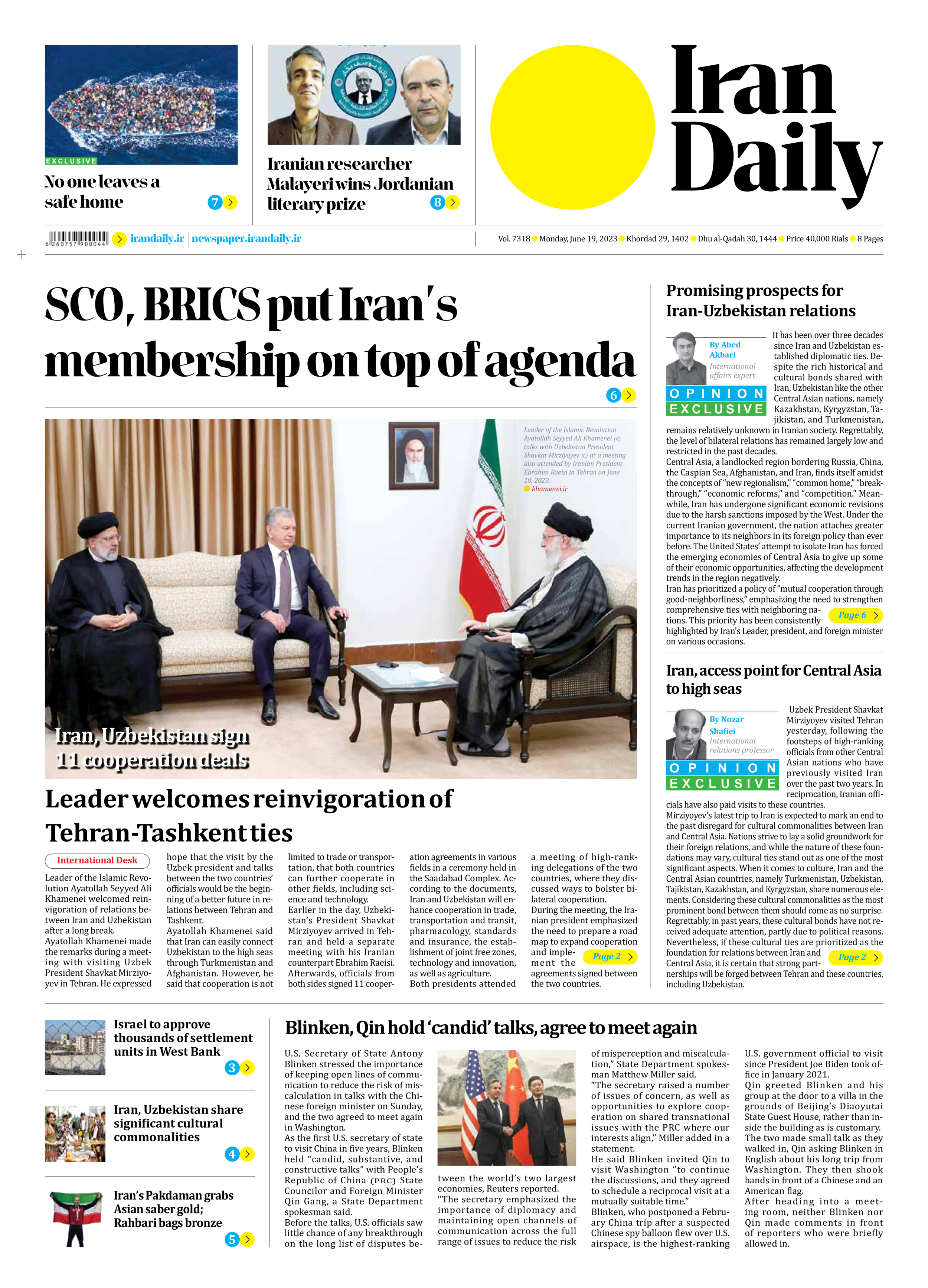
Iran, access point for Central Asia to high seas
By Nozar Shafiei
International relations professor
Uzbek President Shavkat Mirziyoyev visited Tehran yesterday, following the footsteps of high-ranking officials from other Central Asian nations who have previously visited Iran over the past two years. In reciprocation, Iranian officials have also paid visits to these countries.
Mirziyoyev’s latest trip to Iran is expected to mark an end to the past disregard for cultural commonalities between Iran and Central Asia. Nations strive to lay a solid groundwork for their foreign relations, and while the nature of these foundations may vary, cultural ties stand out as one of the most significant aspects. When it comes to culture, Iran and the Central Asian countries, namely Turkmenistan, Uzbekistan, Tajikistan, Kazakhstan, and Kyrgyzstan, share numerous elements. Considering these cultural commonalities as the most prominent bond between them should come as no surprise.
Regrettably, in past years, these cultural bonds have not received adequate attention, partly due to political reasons. Nevertheless, if these cultural ties are prioritized as the foundation for relations between Iran and Central Asia, it is certain that strong partnerships will be forged between Tehran and these countries, including Uzbekistan.
Now that the vital missing link, represented by cultural connections, has been unearthed, it becomes convenient to establish economic and political relations upon it. In this context, it is worth mentioning that these countries possess complementary economic traits, each with its distinct capacities that can also be mutually advantageous. For instance, Turkmenistan can export its natural gas to global destinations by utilizing Iran as a transit route. Uzbekistan can import a portion of its required goods or transport its products to other nations through crucial transit corridors that traverse Iran. Likewise, these transit routes can facilitate Iran’s exports to Russia and China.
Furthermore, all Central Asian countries can be viewed as a substantial market for Iranian manufactured goods. This arrangement not only caters to the demands of the involved parties but also generates substantial revenue for Iran. Particularly, landlocked Central Asian nations lacking direct access to the high seas find optimal connectivity to international waters through Iran.
Now a suitable opportunity is to grasp in order to set aside past negligence and foster the further development of existing capacities between Iran and the Central Asian nations. By embracing economic and political cooperation, the aim is to bring about greater benefits to the people of the region. The visit of the Uzbek president, along with the visits of officials from other Central Asian countries to Iran, holds the potential to revive relations between these nations and elevate cultural, economic, and political exchanges to the desired level.
The membership of these countries in regional organizations such as the Shanghai Cooperation Organization and the Eurasian Union has amplified the potential for cooperation between them and Iran. However, it is the bilateral relations that hold greater significance in this context.







